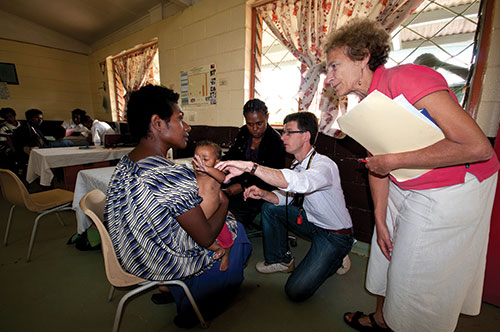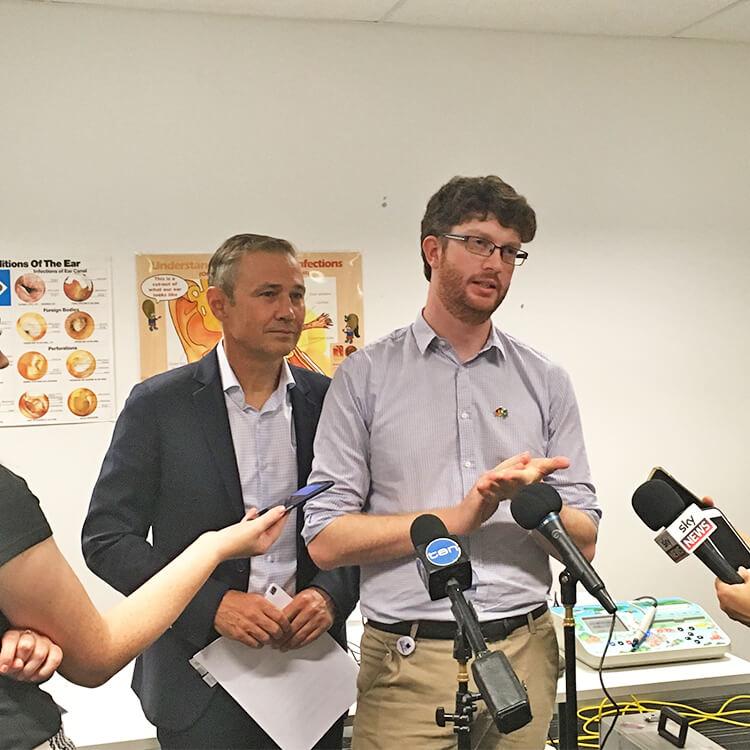Search

News & Events
COVID-19 risks explained for babies, children and pregnant womenMany parents may be feeling anxious and confused about what COVID-19 means for pregnant women, babies and children.

News & Events
Bill & Melinda Gates Foundation Grant aims to prevent deadly infections in early lifeNewborn babies and their fragile immune systems struggle to fight off nasty infections such as septicaemia, pneumonia and gastroenteritis.

News & Events
Churchlands High School Fun Run hits $30,000Over 1000 Year 7 and 8 students from Churchlands Senior High School laced up their running shoes yesterday for their annual Fun Run raising money for the Wesfarmers Centre of Vaccines and Infectious Diseases.

News & Events
The Kids ‘Tall Poppies’ rise above the restThree The Kids researchers have been named amongst WA’s most outstanding young scientists for their efforts to ensure kids around the country have the chance to lead happy and healthy lives.

News & Events
Help us build a new weapon in the fight against deadly fluAt just two years old, Lucy lost her fight against flu. With your generous help, we can finally beat influenza.

News & Events
The Kids Research Institute Australia researcher recognised for saving children in PNGClinical Associate Professor Deborah Lehmann has been recognised for her dedication to reducing the burden of infectious diseases in Papua New Guinea (PNG) with an award supporting research in the Western Pacific named in her honour.

News & Events
New ear health study music to the ears of Aboriginal childrenWait times for Aboriginal children suffering ear infections could be reduced to less than four weeks thanks to a new The Kids Research Institute Australia research project

News & Events
$3.4mill to improve treatment management of cystic fibrosisThe Kids researchers have been awarded over $3.4 million for a new trial to pioneer improved ways for managing cystic fibrosis (‘CF’).
Research
Increasing vaccine acceptance using evidence-based approaches and policies: Insights from research on behavioural and social determinants presented at the 7th Annual Vaccine Acceptance MeetingIn 2019, the World Health Organization (WHO) flagged vaccine hesitancy as one of the top 10 threats to global health. The drivers of and barriers to under-vaccination include logistics (access to and awareness of affordable vaccines), as well as a complex mix of psychological, social, political, and cultural factors.
Research
Assessing the impact of the 13 valent pneumococcal vaccine on childhood empyema in AustraliaEmpyema is a serious complication of pneumonia frequently caused by Streptococcus pneumoniae (SP). We assessed the impact of the 13-valent pneumococcal conjugate vaccine (13vPCV) on childhood pneumonia and empyema after inclusion in the Australian National Immunisation Program.
